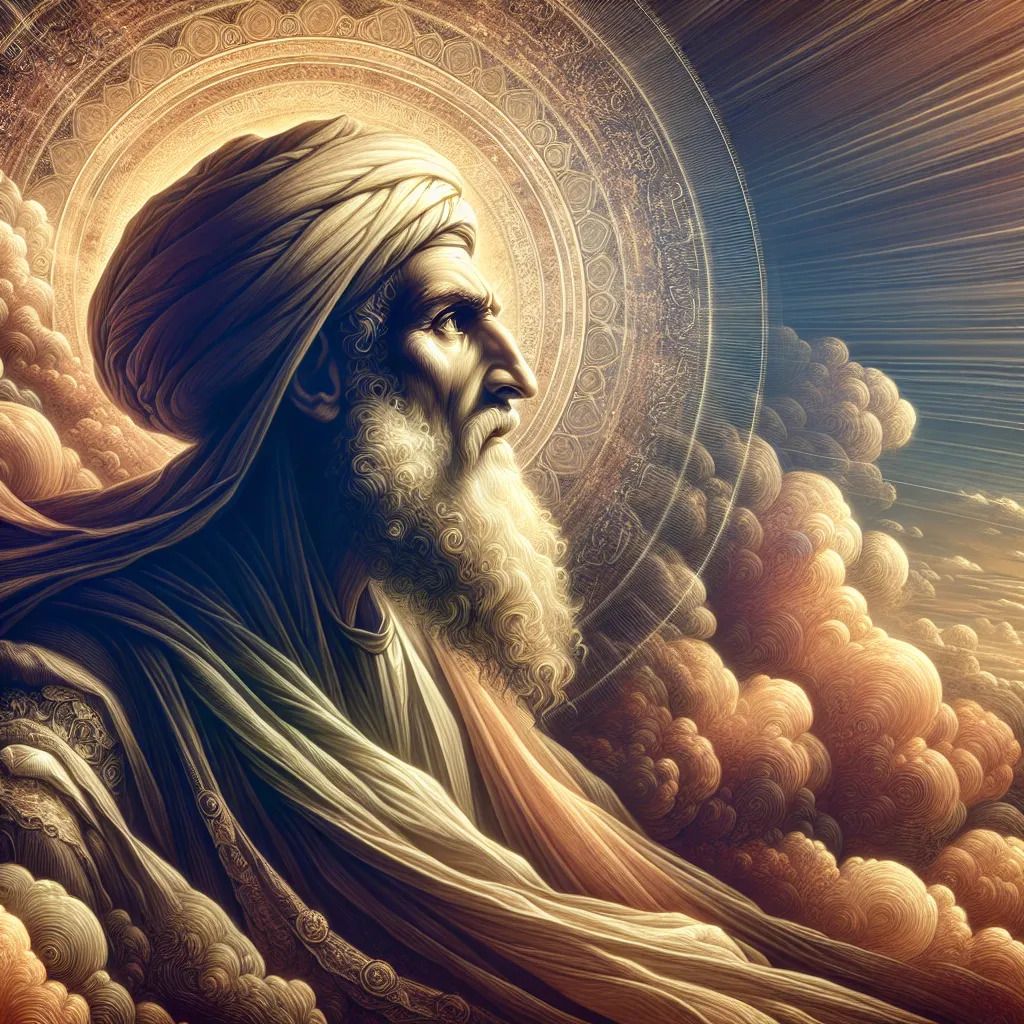
- Published on
- Authors

- Name
- You
The Legacy of Muhammad: His Impact on Islamic Civilization and Beyond
In the intricate tapestry of human history, few individuals have made a mark as profound as Muhammad. As a prophet, leader, and visionary, his life and teachings have indelibly shaped Islamic civilization and continue to resonate with millions around the globe. This article delves into the multifaceted impact of Muhammads legacy, weaving together threads of advanced science and mystical wisdom to paint a comprehensive picture.
The Genesis of Change: Early Life & Revelation
Muhammads journey began in the arid landscape of 6th century Arabia, in the city of Mecca. Orphaned at a young age, he grew up among the tribes of his time, known for their polytheistic beliefs and tribal conflicts. At the age of 40, he received his first revelation from the Angel Gabriel. This divine encounter marked the beginning of a transformation not just for Muhammad but for the entire region.
Key Elements of Muhammads Revelation:
| Aspect | Description |
|---|---|
| Oneness of God | A central tenet that emphasized monotheism, contrasting sharply with the prevailing polytheistic culture. |
| Social Justice | Advocated for the rights of the poor, women, and slaves, promoting a vision of equality and compassion. |
| Moral Conduct | Encouraged honesty, integrity, and ethical behavior in both private and public spheres. |
| Community Building | Focused on the establishment of a cohesive, unified community (Ummah), transcending tribal affiliations and fostering a sense of collective identity. |
Transformation of Society: The Birth of the Ummah
Muhammads teachings were revolutionary, aspiring to create a just, moral, and cohesive society. The migration (Hijra) to Medina in 622 CE marked a pivotal point, leading to the formation of the first Muslim state. Here, we can observe a blend of governance, spirituality, and social reform:
Governance: A Model of Ethical Leadership
- Constitution of Medina: A pioneering document ensuring religious freedom and mutual cooperation among diverse tribes.
- Administrative Innovations: Emphasis on justice and welfare, including the establishment of a welfare system (Bayt al-Mal - House of Wealth).
Spirituality: A New Paradigm
Muhammads emphasis on the inner spiritual journey paralleled the outer societal changes:
- Five Pillars of Islam: Acts of worship (Shahada, Salah, Sawm, Zakat, Hajj) grounding individuals in spiritual discipline.
- Mystical Dimensions: Sufism – the inner, mystical path of Islam, drawing from Muhammad’s spiritual depth and personal experiences.
Legacy Beyond His Lifetime: The Ripple Effect
Muhammad’s influence extended far beyond his physical presence, leaving an enduring legacy seen in various realms:
Intellectual Advancements
- Golden Age of Islam: His teachings laid the foundation for a flourishing of science, philosophy, mathematics, and medicine in the medieval Islamic world.
- Translation Movement: Preservation and expansion of ancient knowledge, contributing substantially to the Renaissance in Europe.
Cultural Influence
- Art and Architecture: Development of unique Islamic art forms, including calligraphy, geometric patterns, and monumental architecture like the Great Mosque of Mecca.
- Literature and Poetry: The Quran itself, a masterpiece of classical Arabic, inspiring a rich tradition of literary and poetic excellence.
Modern Resonance: Muhammads Message Today
Even today, Muhammad’s teachings offer profound guidance in navigating contemporary issues:
- Interfaith Dialogue: Emphasizing common humanity and respect among different faiths.
- Ethical Leadership: Principles of justice, compassion, and community welfare relevant in modern governance and societal structures.
- Personal Spiritual Growth: Encouraging a balanced life with an inner quest for truth and outer acts of goodness.
Conclusion
The legacy of Muhammad is a testament to a life lived with purpose, divinely inspired yet profoundly human. His contributions to Islamic civilization are monumental, and his message continues to inspire and guide people worldwide. By embracing both the scientific advancements and mystical wisdom born from his influence, we can navigate our complex world with a deeper understanding and greater compassion.
May the wisdom of the ages illuminate our paths, and the teachings of Muhammad inspire us towards unity and peace.
